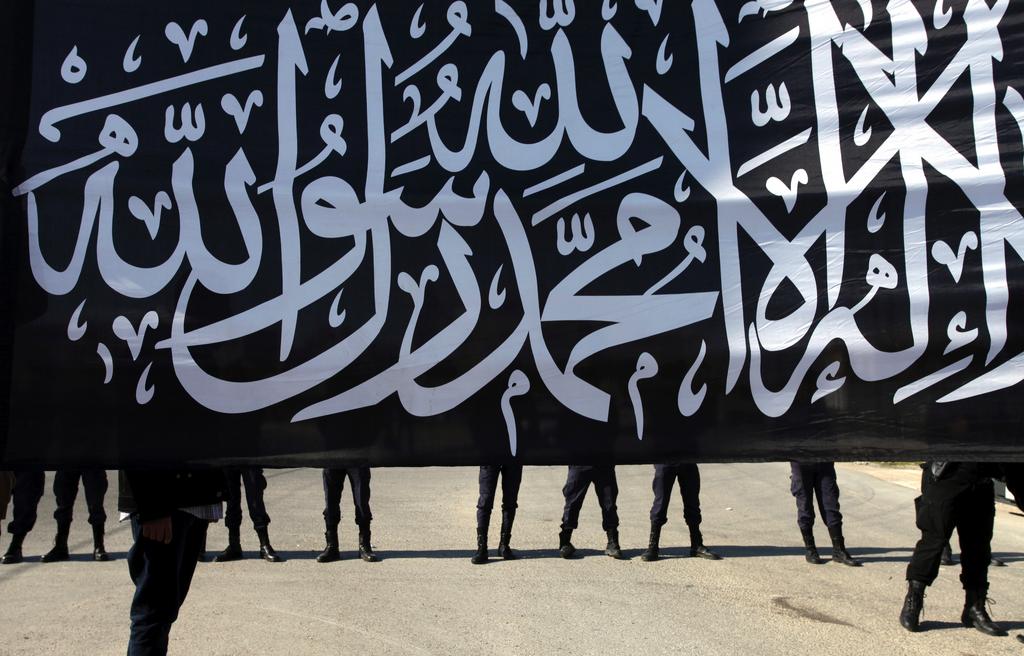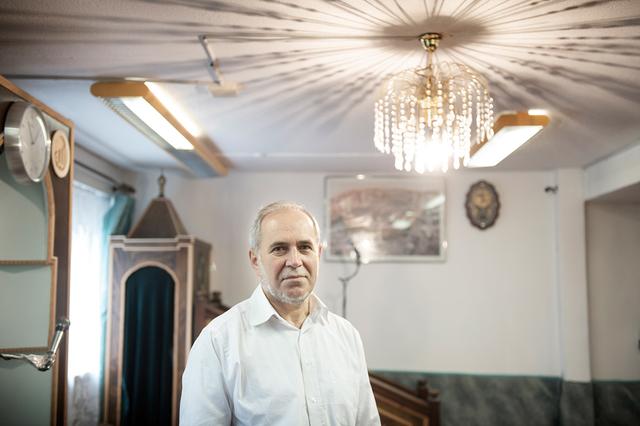Breaking the radicalisation cycle

Global efforts to counter violent extremism continue to intensify with a high-level summit in Washington this week. Outside of international talks, are grassroots approaches the answer? A new Geneva-based agency thinks so.
On Wednesday, civil society and government officials from around the world, including Swiss Foreign Minister Didier Burkhalter, are gathering in Washington for a conference to look at domestic and international efforts to prevent extremists from radicalising and recruiting others.
“While governments have so far been mostly reactive to terrorist challenges, they are now beginning to realise that they also need to be more proactive, to think more preventively in order to get ahead of the terrorism challenge,” declared Christina Schori Liang, a terrorism expert at the Geneva Centre for Security PolicyExternal link, a Swiss-founded organisation that promotes peace and security issues.
“Governments are waking up to the fact that hard security tools cannot reduce the wellspring of violent extremism; their strategies need to work on addressing the underlying grievances and conflicts that feed violent extremism.”
The summit comes amid a series of international initiatives, such as the Global Counterterrorism ForumExternal link or last year’s United Nations Security Council Resolution 2178 to reduce the threat of foreign terrorist fighters in Syria and Iraq.
Spurred to action by January’s terror attacks in France, this month EU leaders agreed on an ambitious range of new steps to better protect their countries from terrorism. As well as detecting and removing internet content promoting terrorism or extremism, they called for closer law enforcement cooperation as well as increased diplomatic engagement with nations in the Middle East, North Africa and Western Balkans.
Domestic strategies have also been introduced in countries like Britain and the US, alongside public and private schemes to address the root causes of terrorism and radicalisation.
New grassroots scheme
One such new public-private initiative is the Geneva-based Global Community Engagement and Resilience Fund (GCERF),External link which this year will start funding small-scale counter-radicalisation projects in Mali, Pakistan, Nigeria, Morocco and Bangladesh.
The US-Turkey-led initiative plans to hand out grants worth between $10,000-30,000 (CHF9,300-28,000) to local projects such as women working for gender empowerment in Mali or IT students in Pakistan challenging jihadi messages on social media.
GCERF Chair Carol Bellamy says the organisation is trying to fill an obvious funding gap.
“Most of these local communities probably understand what drives radicalisation better than we do and may have some of the solutions, but they can’t get the funding they need to start to make a difference,” she said. “One reason the gap exists is that traditional development donors have focused on communities at risk of poverty, not at risk of radicalisation, and often these communities are not the same.”
Empower mothers
Liang said rather than more big conferences, the best way of countering violent extremism was via grassroots initiatives, especially if they involve local women and mothers of extremists.
“You need to have a gender-sensitive approach, empowering women to fight radicalisation, especially as they have an important role in the family,” she added.
The new Geneva organisation is so far backed by Britain, the European Community, Australia, Canada and Qatar. Switzerland has also promised CHF5 million in its first four years.
“What is special about GCERF is not so much the kind of training, recruitment or communication projects but much more their orientation for people and groups at risk of being radicalised and recruited by terrorists,” said Swiss foreign ministry spokeswoman Carole Wälti.
In the countries chosen for the pilot projects, violent extremism mainly occurs among Muslim populations. But that is not the focus of the fund, insists its executive director Khalid Koser.
“GCERF has been set up to try to prevent violent extremism in all its guises – whether religious, tribal, or inter-ethnic. It is certainly not a fund focusing exclusively on Islamic violent extremism,” he said.
Unclear motives
The fund’s chair, Bellamy, echoed this, saying focusing on religion was misleading and that the drivers of radicalisation to violent extremism were complex and often personal to the individual.
“Certainly, economic, social, cultural and political exclusion and marginalisation are all contributing factors,” she said. “Local manifestations of violent extremism may differ, but often the underlying causes were similar and rooted in development – a lack of education, poverty and gender inequality.”
Liang felt that the driving factors behind radicalisation were “not at all clear”.
“It’s very hard to understand why some youngsters are being drawn to Islamic Jihadist groups,” she said. “At the same time, other young foreign fighters from border countries to Syria and Iraq have no choice. It’s a way for them to earn money as they have no future. Others are trapped within the countries and are forced to join the cause.”
Experts agree that measuring the success of the fund’s anti-radicalisation prevention projects will be no easy task, as will be preventing overlap with similar projects already being carried out by development agencies.
“There is a clear risk that this money may end up disappearing into a bottomless pit,” warned Jean-Paul Rouiller, director of the Geneva Centre for Training and Analysis of Terrorism, a Swiss private research groupExternal link. “But in this area of work that’s almost inherent. There is no guarantee of success.”
Swiss overview
Switzerland remains on high alert following the shootings in Paris. The Swiss Federal Intelligence Service (FIS) says the country is not facing any concrete terrorist plots or threats at present, but they are closely monitoring the situation.
Last year an inter-departmental task force was set up, led by the Federal Office of Police, aimed at preventing jihadists travelling from Switzerland to conflict regions and Islamic attacks being committed in Switzerland. According to the FIS, between 2001 and September 2014, 55 people left Switzerland to fight in jihadist conflicts, 35 of whom had left since May 2013. Of the total, 31 went to Iraq or Syria, while 24 went to Pakistan, Afghanistan, Yemen and Somalia. The FIS is reportedly reviewing asylum applications to prevent potential terrorists from entering Switzerland.
Switzerland has been pushing for a more coordinated ways of preventing and countering terrorism at all levels of the United Nations, as well as in the Global Counterterrorism Forum and the Council of Europe. As Chair of the Organisation for Security and Co-operation in Europe (OSCE) in 2014, Burkhalter made the fight against terrorism a priority. At the OSCE Ministerial Council in December 2014 in Basel two pioneering declarations were adopted concerning foreign terrorist fighters and kidnapping for ransom.
Switzerland will provide CHF5 million to the Global Community Engagement and Resilience Fund (GCERF), a US-Turkey-led initiative, in its first four years. The GCERF supports local initiatives aimed at protecting vulnerable groups from radicalisation and violent extremism.

In compliance with the JTI standards
More: SWI swissinfo.ch certified by the Journalism Trust Initiative













You can find an overview of ongoing debates with our journalists here . Please join us!
If you want to start a conversation about a topic raised in this article or want to report factual errors, email us at english@swissinfo.ch.